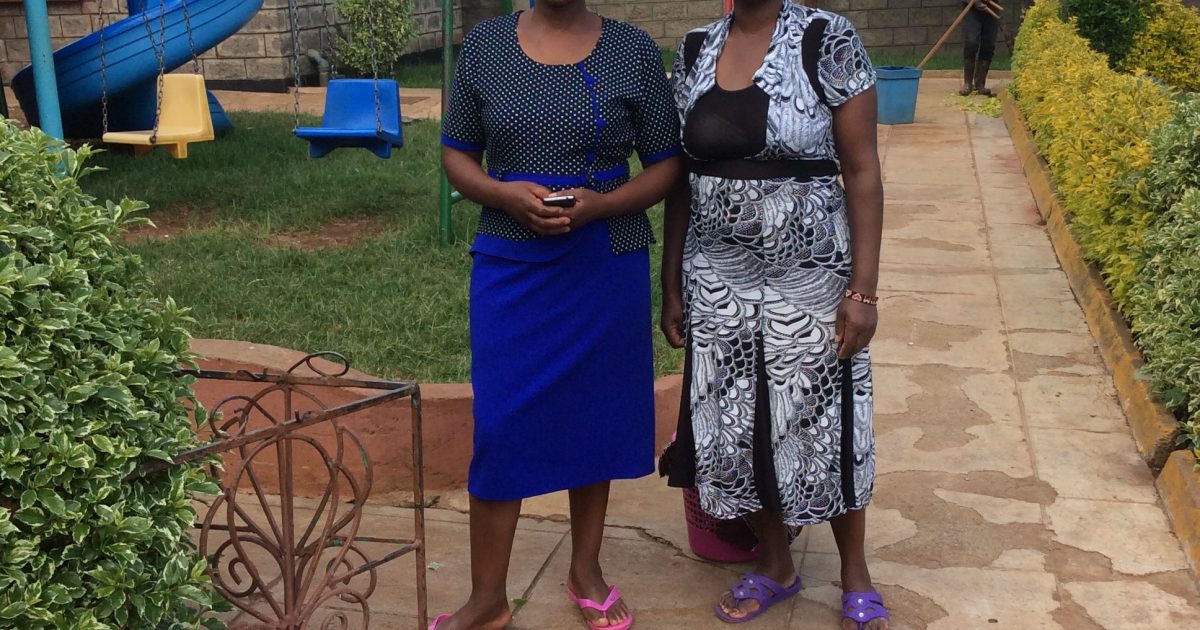
Much has been said and done to give children care and protection. The courts have gone ahead to enforce the same so that all children enjoy it from their biological family homes or by foster parents, which is allowed by the Kenyan law.
Despite their medical condition, it is the right of all children to live just like other people and have an opportunity to benefit from education whether from a private or public institution.
The Government has allowed individuals of good will, local and international donors an opportunity to chip-in towards offering vulnerable children a roof over their heads thus providing them with a place to call ‘home’.
The Church and her affiliates has not been left behind in unshackling the chains that attempt to keep such children in squalor habitats. The religious organizations have played a big role in ensuring that children have a comfortable place to seek refuge whenever they encountered any suffering in the society.
In African societies, children, especially those born with the HIV/AIDS virus have suffered discrimination from the families and sometimes the schools where they spend most of the day. Such children need love, a proper diet and medication to pull through the opportunistic symptoms that could ground and send them to an early grave than expected.
The natural belief in most African societies is that when such children are identified, they are condemned for a mistake that is not theirs. They are labelled and at times what is rightfully theirs is taken away by immediate family members who think they should die.
Such discrimination is what pushed Nazareth Hospital Administration in Limuru Sub-county of Kiambu County to give these children a shoulder to lean on. It was not in vain that the hospital found it prudent to secure and construct a home which is a replica of a village with several homes with their specific mothers.
Some Parents upon knowing their status, they ended up abandoning their children at the hospital leaving them in the hands of health workers. Some left them because they were afraid to be associated with the sick children, while others abandoned them because they knew the children were going to require proper medical care and attention which they were not sure that they could afford to give them amid the scourge that its cure was unknown.
The perception is that such children could not live long and so it was not necessary to give it a trial owing to the poverty that bedeviled most communities. The result was to “run away from them and the most appropriate place for them was to abandon them in the corridors of the hospitals or the wards as they continued receiving treatment. Upon being discharged, the mothers would look for a way to sneak away unnoticed from the health facility and even change their location and phone numbers so that they were not tracked down to take responsibility on their children.
However, with some 12 children having been abandoned at the hospital, the hospital had to come up with a solution of how and where to keep them as they provided for them basic needs. The Kenyan Constitution as well as local statutes of the law provide for protection of Children’s Rights which guide the stakeholders on how these children should be taken care of.
Article 53 of the Constitution provides for the rights of children to free and compulsory basic education, basic nutrition, shelter and health care, protection from abuse, neglect, harmful cultural practices and all forms of violence, inhuman treatment, punishment, and hazardous or exploitative labour and right to parental care and protection.
The pioneer children at JOY HOME (an Oasis of hope) adjacent the Ngarariga Girl’s Secondary School in Bibirioni Ward of Ngarariga Sub-location in Limuru Sub-county can attest to the fact that they live well at the home which was started in 2011.
Currently, there are 58 children in the home and some of them are positive, more of the reason for them to be under the care of the hospital for ease access of medical attention.
They have mothers who live with them in specific houses which accommodates between 8 to 12 children of both gender. The purpose of placing them in a specific house is for them to learn to be responsible so that they all participate in house chores just as they would have done in other traditional homes.
The homes are named as follows- Kindness, Gentleness, Patience, Love, Peace, Faithfulness and Joy. They have children as follows, 8, 9,10,10,11 and 10 respectively. The Mothers-In-Charge of the homes are Grace Nyambura for Kindness, Jane Moraa for Gentleness, Redempta Mbithe for Patience, Elizabeth Nyokabi for Love and Joyce Wanjiru for Peace respectively.
JOY HOME, additionally has a hall where all children and their mothers congregate for prayers and meetings, especially over the weekend. Those who have shown signs of stress and discomfort are counselled by a social worker over the weekend.
These children attend various schools, both public and private for their academics and the Nazareth hospital pays their school fees. This is to give them an opportunity to have a bright future which will enable them participate in nation building like other children in the society.
When parents are wanted at school, the mothers (house mothers at the home) attend to the need and they together with the school administration address the need at hand.
KNA visited the home late last month and found the six-mothers sprucing their homes as others washed the children’s clothes and linen.
Other mothers were busy preparing the supper for the children so that when they arrive home, they can find the food ready before they embark on doing their school assignments.
Each home has a sitting room, a bedroom for the girls, boys and another for mother complete with a bathroom and a toilet and a kitchen from where the mother cooks and serves her ‘children’ their food as they watch programs and news on a colored television set.
Interestingly, each home has their own menu which is approved by the school’s administration to ensure that the children are fed on a nutritious meal to cushion them health wise.
Elizabeth Nyokabi told KNA that the children, all of school going age, were happy to live at the home as they had a ‘mother and a father’ (a male worker) whom they looked up to for advice. The father figure is important as children are always interacting with him as they went about their businesses after returning from school. On the other hand, the worker does all the repair works so as to cut costs of paying dearly to a contractor who would ask for more money.
She revealed that their being at the school was a calling as they left their children back in their homes and accepted to stay at the home for the sake of the children.
On this particular day, Nyokabi was proceeding on leave and was scheduled to leave her 10 children under the custody of an ‘Assistant Mother’. The four Assistant Mothers are also housed within the home and are expected to assist mothers in their roles whenever they left for other businesses such as going for annual leave, market or hospital.
They are on salary too just like the ‘mothers’ but they say it’s like giving back to the society as it is not equivalent to the work they do.
“We have moved away from our homes and come to stay with these children here so that we attend to their needs 24/7,” Nyokabi says.
“You can see how smart I look, I am proceeding on leave for 32 days from today, but in case any of my children needs my attention, I will be recalled from leave so that I can attend to her or him,” she said as she finalized packing her personal effects.
She was to catch a Public Service Vehicle which was going to take about two hours to her matrimonial home in Nyahururu.
Nyokabi revealed that the structure of the home had helped the children grow up in a family set-up where they socialize with others from other homes within the village.
They also participate in co-curricular activities after school in which they keep poultry, rabbits and even engage in vegetable farming. They also play games at their free times and also help the mothers to cook their own food so that they try out what they have learnt at school in home science lessons.
Comparatively, this home is among the best in Kiambu County which is home to more than 100 charitable children institutions (CCI) both registered and unregistered.
By Lydia Shiloya





